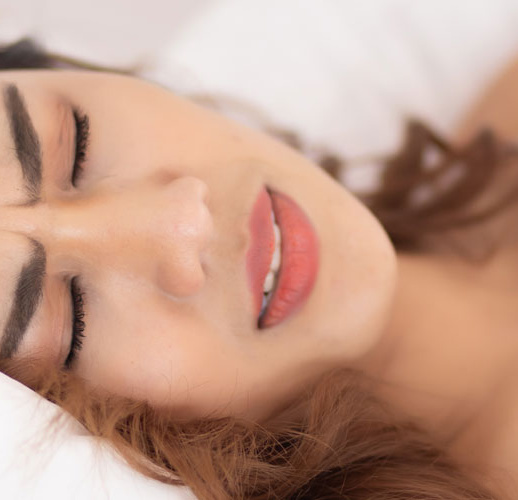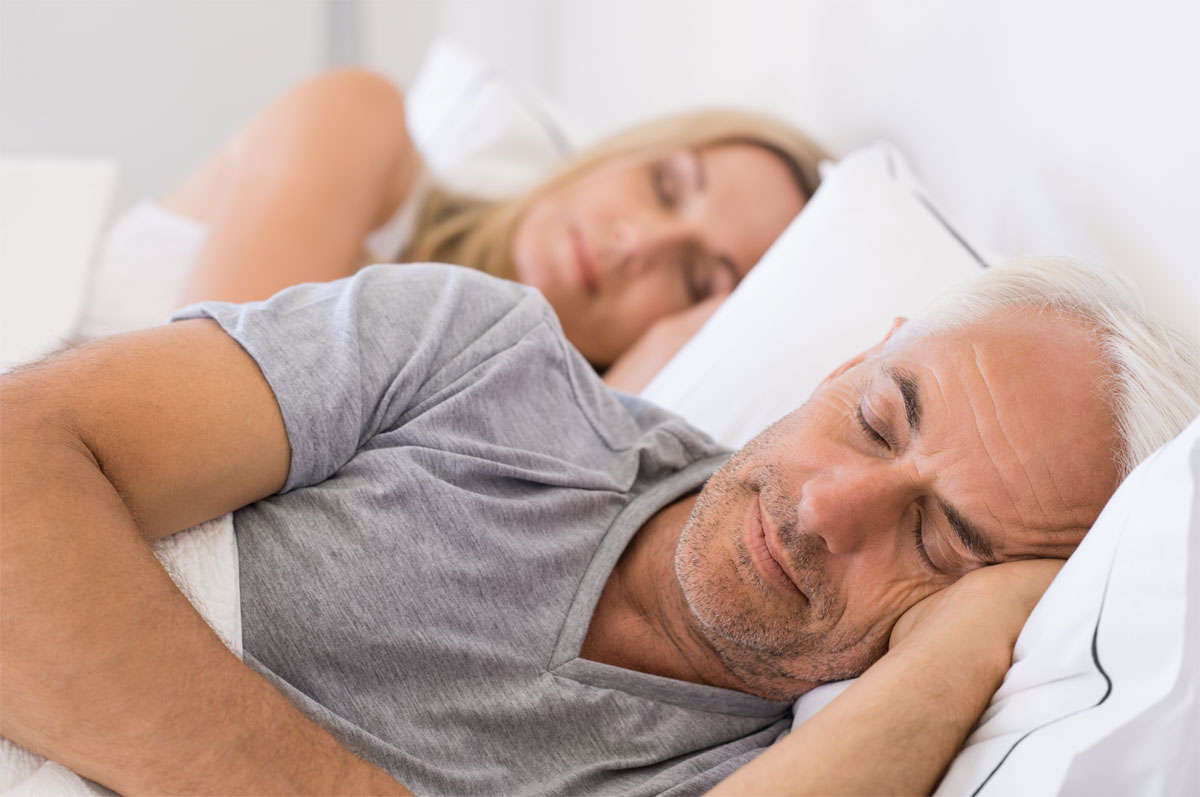
Bruxism: Could You Be Damaging Your Teeth While You Sleep?
You can brush thoroughly and floss faithfully each and every day. Though no matter what you do to care for your teeth during your waking hours, you could be doing real damage to your teeth while you sleep – if you’re one of the estimated 8% of adults or 6% to 50% of children with sleep bruxism.
What Is Sleep Bruxism?
Sleep bruxism is a condition characterized by the persistent grinding of one’s teeth or clenching of one’s jaw during sleep. Sleep bruxism differs from regular bruxism in that the clenching and grinding occur while a person is asleep, rather than awake.
What Causes Sleep Bruxism?
Sleep bruxism has been associated with stress, obstructive sleep apnea, depression, drug and alcohol abuse, caffeine intake, changes in sleeping patterns, temporomandibular joint disorder, and malocclusion. Prior to prescribing any splint therapy to treat sleep bruxism, Dr. Mott will review the potential triggers for the behavior to be sure no other medical intervention is necessary. If it is, Dr. Mott will guide you to the proper treatment for your systemic health.
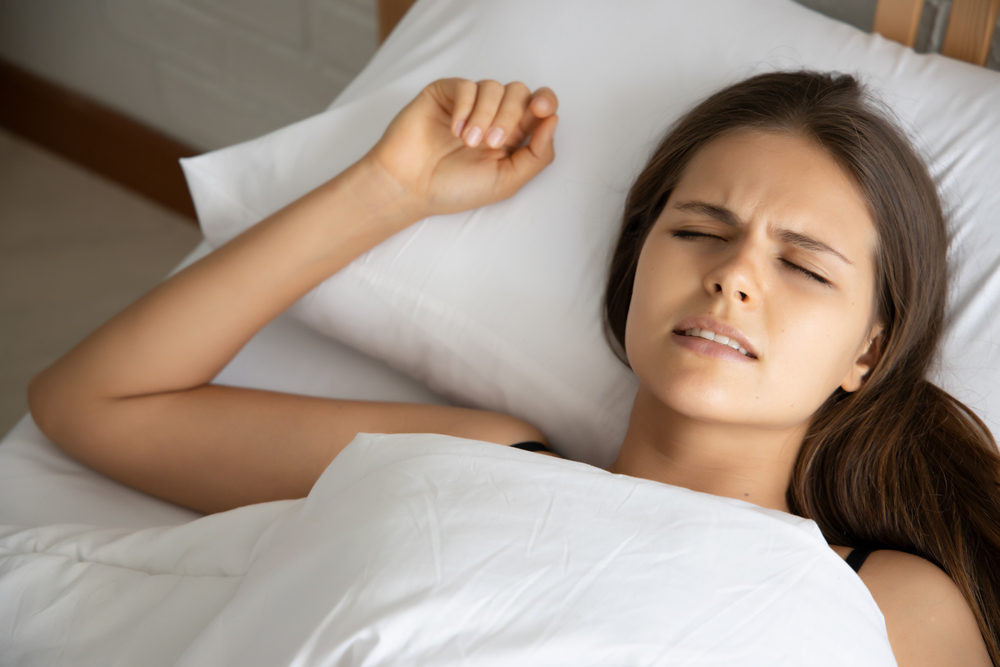
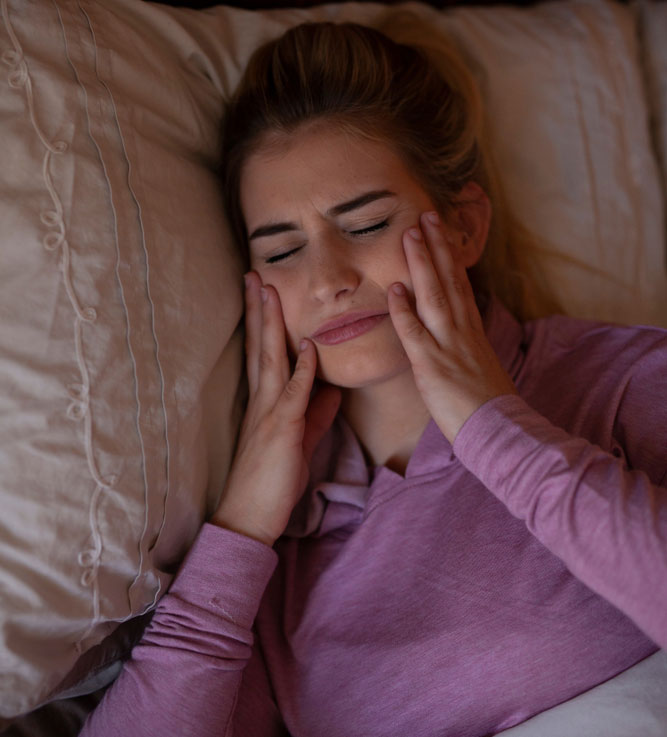
How Do You Know If You Have Sleep Bruxism? (Signs and Symptoms)
If sleep bruxism happens when you’re asleep, then how do you know if you have it?
Sometimes people realize they have sleep bruxism because their partner or parent hears or sees them grinding or clenching their jaw at night. Most commonly, people realize they have sleep bruxism because of the symptoms they experience during their waking hours such as:
- Waking up with jaw pain or stiffness
- Neck pain
- Popping in the jaw
- Frequent headaches or migraines
- Earaches
- Chipped teeth
- Sensitive teeth
Your dentist might even detect signs of sleep bruxism, such as strange patterns of wear and tear on your enamel, during your regular checkup.
What's the Big Deal? Why You Should Take Steps to Protect Your Teeth from Sleep Bruxism
Left untreated, sleep bruxism not only causes painful symptoms like frequent headaches and musculoskeletal pain, it can also permanently damage your teeth. The clenching and grinding puts unnecessary wear and tear on teeth, leading to worn enamel, receding gums, and chipped or broken teeth.
Treatments for Sleep Bruxism
The best way to treat sleep bruxism is to address its underlying cause (if any). This might mean taking steps to reduce one’s stress using strategies like therapy, meditation, and physical exercise. Sleep bruxism can also be addressed with mouthguards and medications.
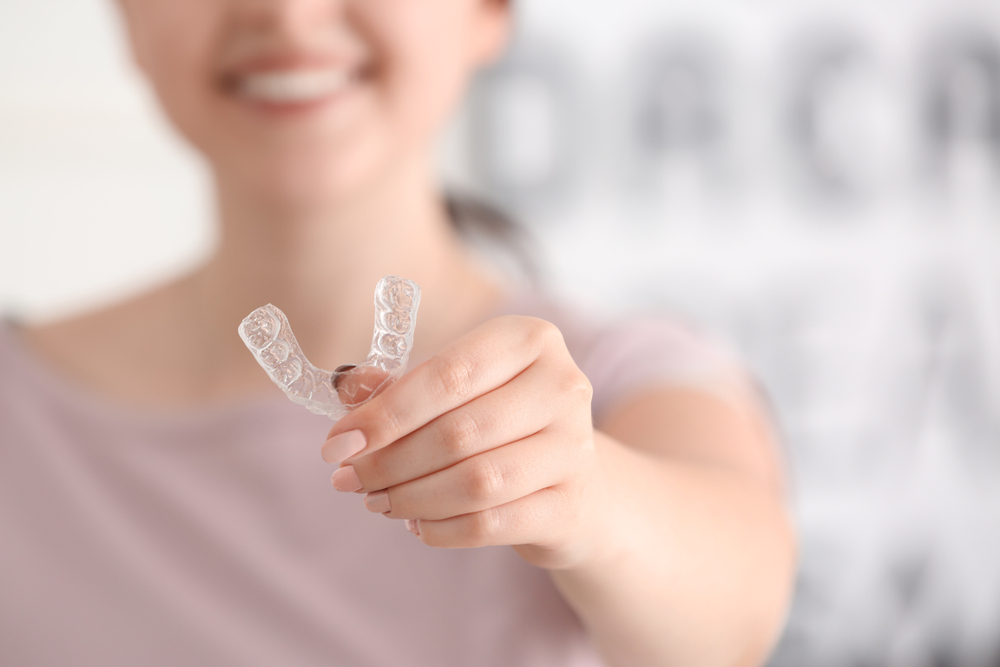
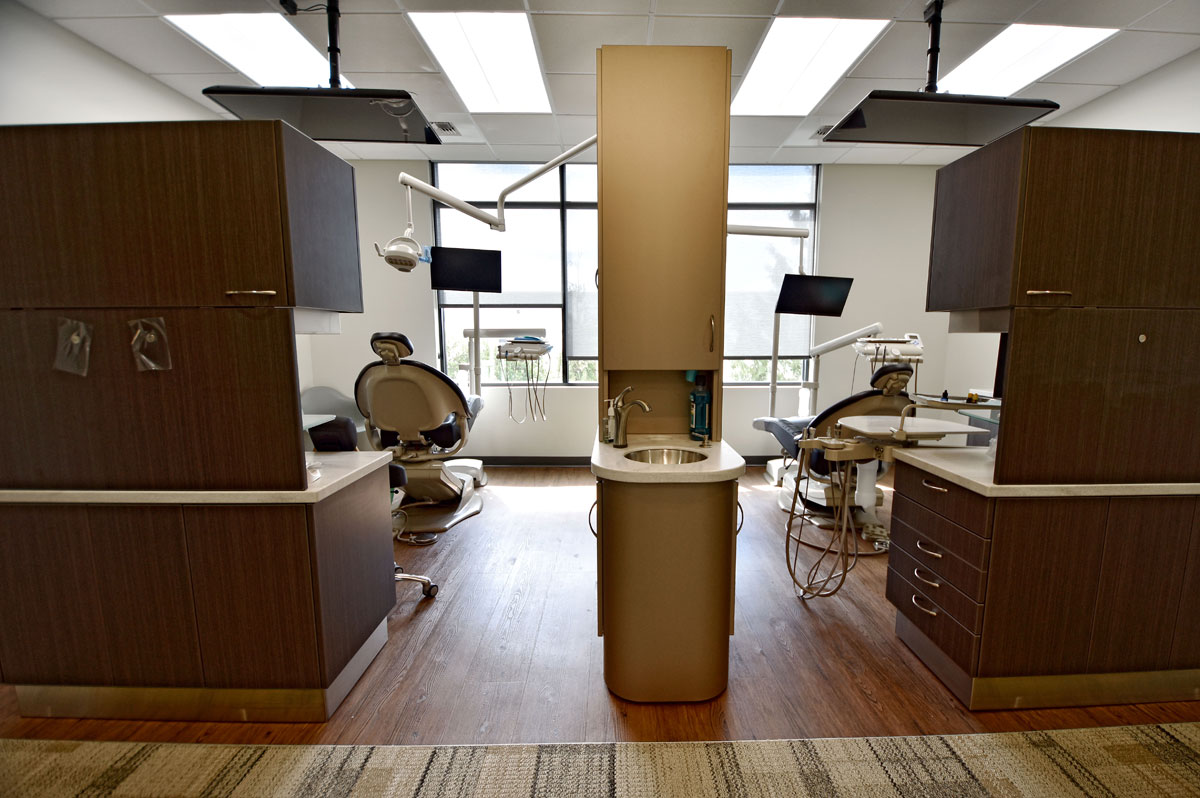
Think You Could Have Bruxism? Schedule a Dentist Appointment in Kenmore
If you suspect you might be grinding or clenching your teeth at night, we invite you to schedule a dental checkup with Dr. Mott at Kenmore Smiles Family Dentistry. We’ll take a look at your teeth, talk with you about your symptoms, and discuss strategies for eliminating your bruxism and preserving your enamel. To schedule your appointment, contact our office today.










